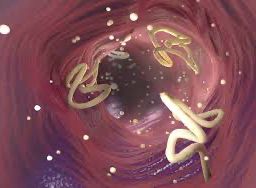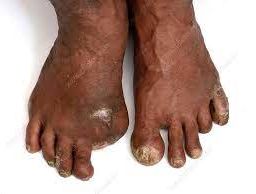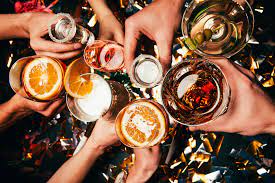
Navigate Festive Seasons: Responsible Drinking Tips
Welcome to our guide on responsible alcohol consumption during festive seasons! As we delve into the effects of alcohol and share preventative tips, our aim is to help you celebrate responsibly. Understanding the impact of alcohol is crucial for a safe and enjoyable experience, so let’s navigate through the world of festivities with a focus on responsible drinking.

Festive seasons like carnival often involve joyful celebrations and indulgence, but it’s important to approach alcohol consumption with caution and responsibility. Understanding the effects of alcohol on the body, the consequences of excessive drinking, and adopting preventative measures can help ensure a safe and enjoyable experience. In this post, we will explore the impact of alcohol, provide tips for responsible drinking, address the dangers of drunk driving, and offer guidance on when to seek emergency assistance. Let’s dive into a world of celebration without compromising our well-being.
The Effects of Alcohol on the Body:
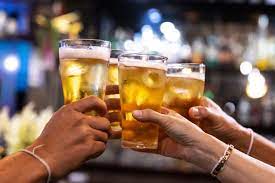
Alcohol is a psychoactive substance that affects the central nervous system, leading to various physical and psychological changes. When consumed, it is rapidly absorbed into the bloodstream and distributed throughout the body. The effects of alcohol can vary depending on factors such as the individual’s weight, tolerance, and the amount consumed. It is essential to be aware of these effects to make informed decisions about alcohol consumption during festive seasons. Alcohol affects the body in various ways, including:
a. Impaired judgment and coordination: Alcohol reduces inhibitions, impairs decision-making abilities, and affects motor skills, leading to unsteady movements and poor coordination. It’s important to be aware of the consequences of excessive alcohol consumption, especially during carnival when excitement is high.
b. Dehydration: Alcohol is a diuretic, increasing urination and causing fluid loss, which can lead to dehydration. Excessive drinking can lead to unpleasant hangover symptoms, including headaches, fatigue, and nausea. It is crucial to stay hydrated by drinking water alongside alcoholic beverages to mitigate these effects.
c. Reduced cognitive function: Excessive alcohol consumption can impair memory, concentration, and overall cognitive function. Alcohol slows down brain activity and impacts motor skills, coordination, and reaction times. These effects increase the risk of accidents, falls, and other injuries.
d. Increased risk-taking behavior: Alcohol lowers inhibitions, leading to risky behaviors that one may not engage in while sober.
Consequences of Being Under the Influence of Alcohol:

Being under the influence of alcohol can have severe consequences, including:
a. Accidents and injuries: Impaired judgment and coordination increase the risk of accidents, falls, and other injuries.
b. Impaired decision-making: Alcohol can cloud judgment, leading to poor decisions, including engaging in unsafe sex or participating in illegal activities.
c. Relationship strain: Excessive drinking can strain relationships, leading to conflicts, misunderstandings, and emotional distress.
d. Health Risks: Long-term excessive alcohol consumption can lead to serious health issues such as liver disease, cardiovascular problems, and mental health disorders.
e. Legal Consequences: Being under the influence of alcohol can result in legal trouble, including public intoxication charges, impaired driving, and involvement in violent or risky behaviors.
Preventative Tips to Avoid Getting Drunk:

While it is tempting to indulge in the festive spirit and let loose during carnival celebrations, it is vital to practice moderation when it comes to alcohol consumption. Moderation means knowing your limits and being mindful of how much you drink. It is advisable to set a personal limit and pace yourself throughout the event. To enjoy alcohol responsibly, consider the following tips:
a. Pace yourself: Set a limit on the number of drinks you’ll consume and stick to it. Sip your drink slowly, allowing your body time to process the alcohol.
b. Alternate with non-alcoholic beverages to stay hydrated and moderate your alcohol intake: Intersperse alcoholic drinks with non-alcoholic options like water, soda, or mocktails to stay hydrated and pace yourself.
c. Eat before and during drinking: Consuming a substantial meal before drinking and snacking while drinking can help slow down the absorption of alcohol into your blood stream and mitigate its effects.
d. Know your limits: Be aware of your tolerance level and respect it. Avoid peer pressure and know when to decline another drink. Determine the number of drinks you will consume beforehand and stick to it. Consider using drink-tracking apps to help you monitor your alcohol consumption.
e. Watch Out for Peer Pressure: Don’t succumb to peer pressure to drink more than you’re comfortable with. Stand firm in your decisions and prioritize your well-being.
Drinking and Driving: A Deadly Combination:
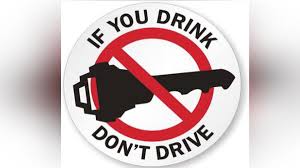
Drinking and driving is a dangerous and potentially fatal decision. Keep these points in mind:
a. Designated driver: If you plan to drink, assign a sober individual in your group as the designated driver.
b. Ride-sharing services: Utilize ride-sharing apps or taxis to ensure a safe journey home.
c. Public transportation: Take advantage of public transportation options available during festive seasons, such as buses or trains.
d. Plan ahead: Before heading out, familiarize yourself with the available transportation options in your area.
e. Cut-Off Point for Drinking: Avoid drinking beyond a certain point where you feel intoxicated. It’s essential to maintain control over your actions and make responsible choices.
Recognizing the Cut-Off Point for Drinking:
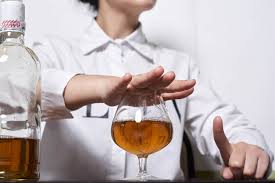
Knowing when to stop drinking is essential for your well-being. Signs that you may have reached your cut-off point include:
a. Slurred speech and difficulty communicating.
b. Loss of coordination and unsteady movements.
c. Impaired judgment and decision-making.
d. Nausea or vomiting.
Addressing Issues of Rape and Sexual Assault:
Alcohol can impair judgment and make individuals more vulnerable to sexual assault. Important considerations include:
a. Consent and Awareness: Respect personal boundaries and ensure enthusiastic consent from all parties involved in any sexual activity. Never engage in sexual activities with someone who is visibly intoxicated or unable to give consent. Engage in open communication and obtain explicit consent from your partner before engaging in any sexual activity.
b. Look out for others: Be aware of those around you and intervene if you witness any concerning situations. Support survivors and help create a safe environment for everyone.
Alternatives to Alcohol

While alcohol is often associated with festive celebrations, it is important to remember that there are numerous enjoyable alternatives available. Non-alcoholic cocktails, also known as mocktails, offer a wide range of flavors and can be just as refreshing as their alcoholic counterparts. These beverages allow everyone to participate in the festivities without the risks associated with excessive alcohol consumption.
When to Seek Help:
Knowing when to seek emergency assistance is crucial. If you or someone else is in immediate danger, feeling threatened, or has experienced sexual assault, call emergency services such as 911 or the police. Reach out to a trusted friend or a helpline specializing in sexual assault support for guidance and assistance.
Call 911, an ambulance, or the police in the following situations:
a. Medical emergencies: If someone shows signs of severe alcohol poisoning, loss of consciousness, difficulty breathing, or seizures, seek immediate medical help.
b. Dangerous situations: If you witness or find yourself in a potentially dangerous or violent situation, contact the police for assistance.
c. Suspected sexual assault: If you or someone else has experienced or witnessed a sexual assault, call the police and seek medical attention for support and evidence collection.

Celebrating during festive seasons like carnival can be a memorable and enjoyable experience. However, it’s vital to approach alcohol consumption with responsibility and caution. Understanding the effects of alcohol, practicing responsible drinking, and avoiding drunk driving are essential for your safety and the well-being of others. By prioritizing responsible behavior and looking out for one another, we can ensure that the festivities remain joyful and free from harm. Let’s celebrate responsibly and create lasting memories while keeping our safety and the safety of others at the forefront.
Disclaimer: This blog post is intended for educational purposes only and does not substitute professional advice. If you or someone you know is struggling with alcohol abuse or facing any emergency situations, please seek appropriate help from medical professionals, law enforcement, or helpline services in your area.


